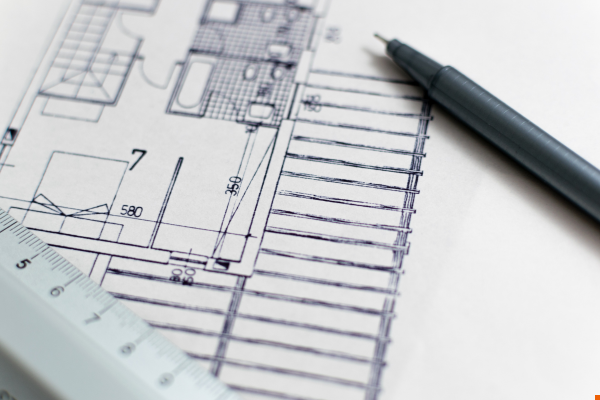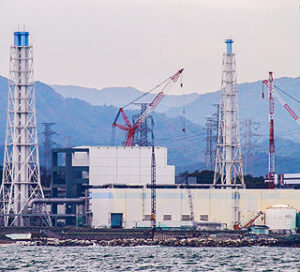
Fukushima Dai-Ichi: When Culture Trumps Engineering Judgment and the Scientific Method
In two recent articles1, MDCSystems® has examined the Fukushima Dai-Ichi nuclear plant explosion and meltdown disaster. Recently a Japanese investigative report2 has provided new insight into the cultural conditions which precipitated the disaster and contributed to the expanse and breadth of the effects of the continuing radiation contamination. While it is well-known that a tsunami generated from a powerful undersea earthquake initiated the incident, what has been difficult to understand is how a modern society with very sophisticated engineering and management skills ignored established nuclear industry standards and practices (Design Basis Events) and safety guidance (Station Blackout) norms and failed to anticipate the events that occurred leading to the nuclear plant meltdown conditions.
As discussed in MDC’s previous articles1 on the Fukishma disaster, the most obvious site engineering failure was the design elevation specified for units one through four. In addition, well-established accident scenarios such as station blackout conditions and nuclear safety related emergency power system design criteria were apparently ignored and directly contributed to immediate and long-term effects of the nuclear incident. The delayed and ineffective Tokyo Electric Power Company (TEPCO) response to the initial event exacerbated the already serious and deteriorating plant conditions and likely contributed to the ongoing deadly effects of the radiation releases.
The report3 to the Japanese parliament stated that “The Fukushima nuclear plant accident was the result of collusion between the government, the regulators and TEPCO and the lack of governance by said parties.” The report goes on to state, “We believe that the root causes were the organizational and regulatory systems that supported faulty rationales for decisions and actions.” In his introduction Chairman Kurokawa said that “cultural traits had caused the disaster.” The Chairman continued his criticism by saying that “What must be admitted – very painfully – is that this was a disaster ‘Made in Japan.’ Its fundamental causes are to be found in the ingrained conventions of Japanese culture: our reflective obedience; our reluctance to question authority; our devotion to ‘sticking with the program; our groupism and our insularity.”
As discussed in our previous articles, the occurrence and extent of earthquakes and resulting tsunamis along the Japanese coastline are well-known and documented incidents. Moreover, in light of the fact that the starkest and most direct warnings concerning tsunamis can be found on Tsunami Stones which populate the Japanese coastline. The Tsunami Stones literally, “cast in stone,” the message from previous generations of Japanese ancestors that “if you build your house below this point the sea will come and take it away.” Professor Kurakowa answers the questions, as to how and why did the modern Japanese engineers, nuclear operators and government regulators ignore such a direct and historically grounded warning; as well as other well established and tested nuclear safety guidance?
Professor Kurakowa’s study provides a surprising answer. According to this comprehensive study it is the unique aspects of Japanese culture that led to the engineering failure to recognize the safety shortcomings in the plant design features, allowing the initial disaster to morph into an explosion damaging the secondary containment and compound the effects of the meltdown, resulting in increasing consequences for the population and escalating costs and long-term effects. The author of the study says “Japanese cultural norms” are primarily responsible for the failure to recognize and apply the appropriate nuclear safety standards concerning anticipated design basis events. This insight and critique explains that the reluctance to question authority and implement decisions reached by consensus often prevent an adequate evaluation/reevaluation of the safety status of the nuclear plants over time.
 Professor Kurakowa provides new insight into the effects of culture on the decision-making process as it evolved between Japanese government regulators and the Tokyo Electric Power Company ‘s (TEPCO). In Japanese society important decisions require consensus among the decision-makers. This cultural characteristic leaves decision making to a group think exercise where everyone is reluctant to raise important emerging issues for reconsideration after fundamental decisions have been made.
Professor Kurakowa provides new insight into the effects of culture on the decision-making process as it evolved between Japanese government regulators and the Tokyo Electric Power Company ‘s (TEPCO). In Japanese society important decisions require consensus among the decision-makers. This cultural characteristic leaves decision making to a group think exercise where everyone is reluctant to raise important emerging issues for reconsideration after fundamental decisions have been made.
The overall effect and result of this approach prevented knowledgeable parties from raising fundamental safety questions once the government/industry decisions had been made concerning Fukushima Dai-Ichi. This is quite surprising in light of the fact that other coastal nuclear power plants in Japan had undergone safety reevaluations and had installed and were installing additional features to moderate the most serious effect of the combination of earthquake and tsunami. It is significant to note that another Japanese costal nuclear plant (Onagawa) was closer to the epicenter of the earthquake (44 miles) and resulting tsunami but did not suffer the explosion and meltdown scenario that evolved at Fukushima Di-Ichi (112 miles).4
This introspective study by the Japanese investigators, led by Professor Kurakowa, provides insight that cannot be ignored when investigating and evaluating complex engineering system failures. In a recent article in the viewpoint section of engineering news record MDCSystems® discussed the elements of complexity leading to failure of engineering systems and the construction process. We had not previously identified cultural factors in the complexity process as negatively influencing engineering decision-making. However, given the examples from Fukishima Dai-Ichi, they cannot be ignored.
1 MDC Advisor, April 2012 and MDCAdvisor, July 2012
2 Fukushima reactor meltdown was a man-made disaster, says official report; Guardian, Fukishma Meldown, July 2012
3 Head Investigator Kiyoshi Kurokawa, Japanese Parliamentary Panel
4 ENR.com, Digital wire 08/10/2012, Associated Press by Mari Yamaguchi
5 ENR.com, Viewpoint June 25th, 2012
————————————————————————————————————————
MDCSystems® has been investigating and evaluating Architectural, Engineering and Construction failures for over fifty years. MDC serves a wide range of clients for both domestic and international projects. Questions or comments on this article should be directed to McCue@MDC Systems.com



0 Comments